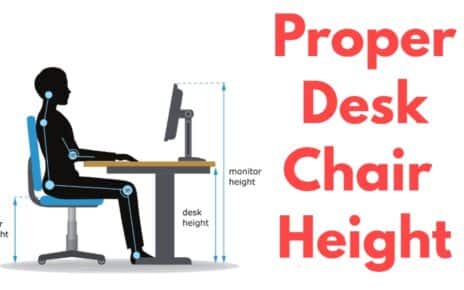
Affordable Health Insurance Plans in the USA : In the vast and dynamic landscape of the United States, navigating the complexities of health insurance can feel like traversing a labyrinth. With healthcare costs on the rise and the insurance market constantly evolving, finding affordable health insurance plans that cater to your specific needs is more critical than ever. This comprehensive guide delves into the intricacies of affordable health insurance plans in the USA, empowering you with valuable insights and actionable tips to make informed decisions regarding your healthcare coverage.
Affordable Health Insurance Plans in the USA
Understanding the Essentials
Before we delve into the specifics of affordable health insurance plans, let’s establish a solid foundation by understanding some fundamental concepts and terms associated with health insurance in the USA:
Health Insurance Marketplace:
Often referred to as the Exchange, the Health Insurance Marketplace serves as a platform where individuals and families can browse and purchase health insurance plans. It offers a diverse range of options, encompassing private insurance plans alongside government-sponsored programs like Medicaid and CHIP (Children’s Health Insurance Program).
Premiums, Deductibles, and Copayments:
Premiums are the monthly fees you pay to maintain your health insurance coverage. Deductibles represent the amount you must pay out of pocket before your insurance kicks in to cover expenses. Copayments, on the other hand, are fixed amounts you pay for specific healthcare services or prescriptions.
Types of Health Insurance Plans:
The USA healthcare system offers various health insurance plan types, including:
HMOs (Health Maintenance Organizations):
HMO plans require you to choose a primary care physician (PCP) who coordinates your care and provides referrals to specialists within the HMO network.
PPOs (Preferred Provider Organizations):
PPO plans offer more flexibility in choosing healthcare providers. While in-network providers offer lower costs, you can still access out-of-network providers for a higher cost.
EPOs (Exclusive Provider Organizations):
Similar to HMOs, EPO plans require choosing a primary care physician within a specific network. However, EPOs generally offer wider networks compared to HMOs.
HDHPs (High Deductible Health Plans) paired with HSAs (Health Savings Accounts):
HDHPs boast lower premiums but come with higher deductibles. HSAs are tax-advantaged accounts that allow you to save money specifically for qualified medical expenses.
Affordable Health Insurance Plan Options
Now that we’ve established a foundational understanding of health insurance, let’s explore some affordable options readily available to individuals and families in the USA:
Marketplace Plans:
The Health Insurance Marketplace is a game-changer, offering subsidized plans based on your income and household size. These plans provide essential health benefits and are designed to be financially accessible for low-to-moderate income individuals and families.
Medicaid and CHIP:
Medicaid, a state and federally funded program, provides free or low-cost health coverage to eligible low-income individuals and families. CHIP, on the other hand, offers low-cost health coverage for children in families who earn too much to qualify for Medicaid but struggle to afford private insurance.
Catastrophic Health Insurance:
Designed to provide a safety net for major medical expenses like hospitalizations and surgeries, catastrophic plans typically have lower premiums but come with higher deductibles. These plans are ideal for young, healthy individuals seeking protection against unforeseen medical emergencies.
Short-Term Health Insurance:
Short-term health insurance plans offer temporary coverage for specific periods, ranging between one to twelve months. While these plans can be budget-friendly, they often lack comprehensive coverage and are not eligible for subsidies through the Health Insurance Marketplace.
Tips for Finding Affordable Health Insurance Plans
Unraveling the complexities of health insurance requires meticulous consideration and research. Here are some valuable tips to help you find affordable health insurance plans that effectively address your needs:
Evaluate Your Healthcare Needs:
Before embarking on your search for a health insurance plan, take the time to assess your healthcare needs. Consider factors like doctor visits, prescription medications, and potential medical emergencies. This self-evaluation will guide you in determining the appropriate level of coverage required.
Compare Multiple Plans:
Don’t settle for the first plan that comes your way. Diligently compare various plans offered by different insurers to find the ideal combination of coverage and pricing. Utilize online resources and tools provided by the Health Insurance Marketplace to facilitate a smooth comparison process.
Explore Subsidized Programs:
If your income and household size meet the eligibility criteria, consider exploring subsidized programs like Medicaid, CHIP, or premium tax credits obtainable through the Health Insurance Marketplace. These programs can significantly lessen your financial burden associated with health insurance.
Seek Cost-Saving Opportunities:
Many insurers provide opportunities to save on healthcare costs, such as wellness programs that incentivize preventive care and discounts for utilizing in-network providers. Take advantage of these benefits to minimize your overall healthcare expenses.
Consider a High Deductible Health Plan (HDHP) with a Health Savings Account (HSA):
An HDHP can be a valuable strategy for those in good health who are comfortable with a higher deductible. HDHPs typically boast lower monthly premiums compared to traditional plans. However, they come with higher deductibles, meaning you’ll pay more out of pocket before your insurance kicks in.
HSAs are tax-advantaged accounts often paired with HDHPs. HSAs allow you to contribute pre-tax dollars to cover qualified medical expenses not covered by your insurance, such as deductibles, copayments, and copays for vision and dental care. Contributions to HSAs grow tax-free, and qualified withdrawals used for medical expenses are also tax-free. This allows you to save money for future healthcare needs while potentially lowering your overall healthcare costs.
Here’s a breakdown of the pros and cons to help you decide if an HDHP/HSA combination is right for you:
Pros:
- Lower monthly premiums
- Tax-advantaged savings for healthcare expenses
- Potential for increased cost-consciousness when utilizing healthcare services
Cons:
- Higher deductible, requiring you to pay more out of pocket before insurance coverage kicks in
- May not be suitable for individuals with chronic health conditions or those anticipating significant medical expenses
Carefully evaluate your health status, financial situation, and risk tolerance before opting for an HDHP/HSA plan.
Negotiate:
While negotiating health insurance premiums might not be as common as negotiating other bills, it doesn’t hurt to try, especially if you are a healthy individual or part of a healthy group applying for coverage. You can negotiate directly with the insurer or consider a broker who can advocate on your behalf.
Consider Short-Term Coverage (with Caution):
Short-term health insurance plans can be a temporary solution for those in between jobs or waiting for other coverage to kick in. However, these plans typically have limitations, such as:
Limited coverage:
They may not cover pre-existing conditions or offer comprehensive benefits.
Renewal restrictions:
Renewals may not be guaranteed, and the plan might be canceled if you experience a health issue.
Proceed with caution when considering short-term plans and ensure you understand the limitations before enrolling.
Seek Assistance:
If you’re feeling overwhelmed by the complexities of health insurance, don’t hesitate to seek help. Here are some resources available to you:
Health Insurance Marketplace:
Trained assistors are available through the Health Insurance Marketplace to guide you through the enrollment process and help you determine if you qualify for subsidies.
State Insurance Departments:
Your state insurance department can provide information about local resources and regulations pertaining to health insurance.
Healthcare Professionals:
Your doctor or other healthcare provider may be able to offer guidance on navigating the healthcare system and choosing the right health insurance plan.
- Unleash the Harvest: Fast-Growing Vegetables for California’s Raised Garden Beds
 Fast-Growing Vegetables for California’s Raised Garden Beds : California’s golden sunshine, mild climate, and fertile soil are a gardener’s dream. Elevated planting in raised garden beds takes this advantage to the next level. These controlled environments offer improved drainage, easier pest management, and the perfect canvas for cultivating a fast and furious vegetable bounty. Fast-Growing… Read more: Unleash the Harvest: Fast-Growing Vegetables for California’s Raised Garden Beds
Fast-Growing Vegetables for California’s Raised Garden Beds : California’s golden sunshine, mild climate, and fertile soil are a gardener’s dream. Elevated planting in raised garden beds takes this advantage to the next level. These controlled environments offer improved drainage, easier pest management, and the perfect canvas for cultivating a fast and furious vegetable bounty. Fast-Growing… Read more: Unleash the Harvest: Fast-Growing Vegetables for California’s Raised Garden Beds - Pitbull Announces Party After Dark Tour With T-Pain: A Must-See Event for Music Lovers
 Pitbull Announces Party After Dark Tour With T-Pain : Pitbull, the renowned artist known for his electrifying performances and chart-topping hits, has recently announced the much-anticipated “Party After Dark Tour” featuring none other than the iconic T-Pain as a special guest. This tour promises to be a spectacular celebration of music, bringing together two powerhouse… Read more: Pitbull Announces Party After Dark Tour With T-Pain: A Must-See Event for Music Lovers
Pitbull Announces Party After Dark Tour With T-Pain : Pitbull, the renowned artist known for his electrifying performances and chart-topping hits, has recently announced the much-anticipated “Party After Dark Tour” featuring none other than the iconic T-Pain as a special guest. This tour promises to be a spectacular celebration of music, bringing together two powerhouse… Read more: Pitbull Announces Party After Dark Tour With T-Pain: A Must-See Event for Music Lovers - Unwind with Your Furry Friend: Pet-Friendly Cabins with Private Hot Tubs near Yellowstone National Park
 Pet-Friendly Cabins with Private Hot Tubs near Yellowstone National Park : Yellowstone National Park, a crown jewel of the American wilderness, beckons adventurers with its geysers, hot springs, and breathtaking landscapes. But what if you could experience this wonder alongside your furry best friend? Imagine returning from a day of exploring the park’s marvels, sharing… Read more: Unwind with Your Furry Friend: Pet-Friendly Cabins with Private Hot Tubs near Yellowstone National Park
Pet-Friendly Cabins with Private Hot Tubs near Yellowstone National Park : Yellowstone National Park, a crown jewel of the American wilderness, beckons adventurers with its geysers, hot springs, and breathtaking landscapes. But what if you could experience this wonder alongside your furry best friend? Imagine returning from a day of exploring the park’s marvels, sharing… Read more: Unwind with Your Furry Friend: Pet-Friendly Cabins with Private Hot Tubs near Yellowstone National Park - Cultivate Your Dreams: Building a Raised Garden Bed in Tight Spaces
 Building a Raised Garden Bed in Tight Spaces : For city dwellers and space-conscious gardeners, the dream of fresh, homegrown produce might seem like a distant utopia. But fret no more! Raised garden beds offer a game-changing solution, transforming even the most limited balconies, patios, or sunny nooks into flourishing mini-farms. Building a Raised Garden… Read more: Cultivate Your Dreams: Building a Raised Garden Bed in Tight Spaces
Building a Raised Garden Bed in Tight Spaces : For city dwellers and space-conscious gardeners, the dream of fresh, homegrown produce might seem like a distant utopia. But fret no more! Raised garden beds offer a game-changing solution, transforming even the most limited balconies, patios, or sunny nooks into flourishing mini-farms. Building a Raised Garden… Read more: Cultivate Your Dreams: Building a Raised Garden Bed in Tight Spaces - Best Organic Mattresses for Back Pain Sufferers Under $1,500
 Best Organic Mattresses for Back Pain Sufferers Under $1,500 : Waking up with a crick in your neck or lower back pain can put a damper on anyone’s day. But for chronic back pain sufferers, a good night’s sleep can feel like a distant dream. The right mattress can make a world of difference, providing… Read more: Best Organic Mattresses for Back Pain Sufferers Under $1,500
Best Organic Mattresses for Back Pain Sufferers Under $1,500 : Waking up with a crick in your neck or lower back pain can put a damper on anyone’s day. But for chronic back pain sufferers, a good night’s sleep can feel like a distant dream. The right mattress can make a world of difference, providing… Read more: Best Organic Mattresses for Back Pain Sufferers Under $1,500




